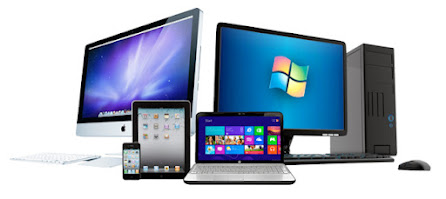Do You Want to Replace Your Computer?Buy a New Computer Only When Your Existing One Can No Longer Perform Essential Tasks
Do You Really Need
to Buy a New Computer?
- This question arises in every computer user's mind. Everyone wants the latest and fastest computer, but is it really necessary? Before spending thousands of rupees on a new computer, you need to assess whether your current system meets your requirements.
User Needs Analysis
Before purchasing a new computer, evaluate your usage type:
- Basic Use: If you only use your computer for internet browsing, Microsoft Office, or online meetings, then buying a new system is unnecessary—an upgrade will suffice.
- Heavy Users: If you work with video editing, gaming, graphic design, or large software applications, then a new computer might be necessary.
- As operating systems like Windows, Linux, and macOS evolve, older computers often struggle to support modern software. This issue is known as Forced Obsolescence. For example, Google Chrome can be installed on Windows 7, but it cannot be updated to the latest version.
- In such cases, instead of replacing the computer, try upgrading Windows or the operating system first. However, if your hardware is incompatible with modern operating systems, then a new computer becomes essential.
Do Computers Deteriorate Over Time?
- It is a common misconception that computers degrade over time, similar to how mechanical parts in a car or motorcycle wear out. In reality, computers have very few moving parts, such as the processor cooling fan, power supply fan, or old hard drive motor. What primarily affects a computer’s performance is years of updates, unnecessary software, outdated drivers, and temporary files.
Ways to Speed Up Your Computer
(Without Buying a New One)
If your computer has slowed down, try these steps before replacing it:
- Reinstall the operating system and format the partition where it is being installed.
- Replace the hard drive with an SSD or install an NVMe drive if supported.
- Upgrade RAM—if you have 4GB RAM, increase it to 8GB or 16GB.
- Upgrade the graphics card if necessary.
Cost vs. Performance Comparison
If you are considering a new system solely for speed, compare the costs first:
Is the End of Operating System Support a Problem?
It is important to understand that when an operating system's support ends, it does not mean the computer will stop working. For example, Microsoft is ending support for Windows 10 in 2025, yet it will continue functioning for many years. Windows 7 and XP are still in use by some businesses, despite their support having ended long ago.
Alternative Solutions: New or Refurbished Computers?
- If you must buy a new computer, consider refurbished or used computers as well. These are available at lower prices and can perform excellently if chosen wisely.
Conclusion
If your computer is slowing down, try upgrading it first before replacing it. Buy a new computer only when no other option remains. This way, you can save money while ensuring better performance.
F.A.Q:
How to Make Your Computer Faster
1. Why does my computer become slow?
- Too many background programs running.
- Hard drive or SSD is full.
- Virus or malware is affecting performance.
- Low RAM causing slow processing.
2. How can I speed up my computer?
- Close unnecessary programs (via Task Manager).
- Disable startup programs (Task Manager → Startup).
- Upgrade to an SSD if you're using an HDD.
- Increase RAM if it's low.
- Delete unwanted files (Disk Cleanup).
- Turn off background apps and animations.
3. How to improve Windows speed?
- Set power settings to "High Performance".
- Update Windows and drivers.
- Clear temporary and cache files.
- Run a malware scan (Windows Defender or antivirus).
4. How to make a PC faster for gaming?
- Update graphics card drivers.
- Enable Game Mode (Windows Settings).
- Close background apps.
- Uninstall extra software or bloatware.
5. How to prevent my laptop/PC from overheating?
- Clean the cooling fan regularly.
- Replace thermal paste if needed.
- Use a cooling pad for laptops.
6. Why is my internet slow, and how to fix it?
- Restart your router.
- Use an Ethernet cable instead of WiFi.
- Disable background downloads and updates.
- Change DNS settings (Google DNS: 8.8.8.8, 8.8.4.4).
7. Should I reinstall Windows?
- If your PC is still slow after trying all fixes, a fresh Windows installation might be the best option.
8. What’s the difference between SSD and HDD?
- SSD is much faster, reducing boot time and software loading times.
- HDD is cheaper but significantly slower compared to an SSD.
9. What is the best RAM speed?
- 8GB RAM is ideal for normal use.
- 16GB RAM is better for gaming and heavy tasks.
- 3200MHz or higher RAM is best for gaming and editing.
10. Which is faster: Windows or Mac?
- Mac is more optimized but less customizable.
- Windows can be upgraded and customized but requires optimization.
- If your PC is still slow, consider a hardware upgrade for the best performance!
Tags
(Features)






